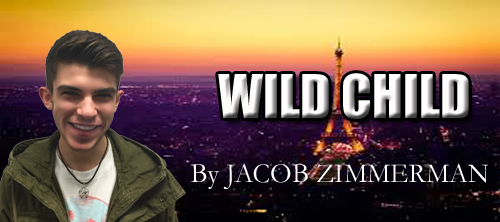Bullying often lurks unseen, difficult to identify

Revere High School supports the anti-bullying slogan “If you see something, say something.” This slogan encourages students to take notice of bullying or malicious words, and either stand up to a bully or immediately report the event to an adult. I struggle with this slogan for one simple reason: I do not see anything.
At Revere Middle School, I dealt with the usual teasing and taunting that any regular middle school student experiences. When I reached high school, however, I saw very little of the mockery that I had endured for the past three years of adolescence. Did everyone just suddenly mature? Did bullying evolve faster than Apple’s newest iPhone? Perhaps it has vanished. Regardless, I do not see it as often.
Ditch the Label, one of the United Kingdom’s largest anti-bullying charities, took an annual bullying survey of over 4,800 young people in the United Kingdom this year. They wanted to measure the amount of bullying in the age demographic between 13 and 20 years of age; their findings shock me. They concluded from their survey that 50% of young people have participated in bullying others, and 30% do it once a week. They added that 69% of young people have witnessed bullying, and 43% see it once a week.
Yes, my generation unfortunately practices brutality or allows it to continue without taking notice of it. Teenage suicide rates are steadily increasing. Mental illnesses such as depression and eating disorders seem to appear more often than the common cold. Can someone please assure me that this will all disappear by the time I reach adulthood?
According to Revere High School Student Resource Officer Eric Shaffer, both adolescents and adults may participate in bullying; age does not grant the knowledge that no one should have to deal with bullies. He added that social media has now changed the way bullying takes place, transforming from a six-hour school day of possible face-to-face bullying to permanently archived, anonymous social media attacks. He would like to see these social media platforms run anti-bullying campaigns to raise awareness among users.
I believe that the percentages of people who participate in bullying can change based on individual definitions of bullying. Regardless of calculations, I do not tolerate bullying; I cannot soundly justify the tormenting of others. The number of people who have witnessed or continue to witness bullying, however, leaves me dazed and confused. How has this once prominent issue escaped my field of vision? Are people nicer to each other in America than they are in the United Kingdom?
Perhaps I should not ask myself why I am not seeing anything, but rather why I am not hearing anything. Ditch the Label also concluded that 45% of the people surveyed did not report bullying, 32% of which because they felt their reports would not be taken seriously. Another 32% of those surveyed added that they felt too embarrassed to voice their problems, and 26% felt that the bullying would worsen if action was taken. By keeping this issue to themselves, bullied individuals may be left with no choice but to endure various forms of physical and psychological affliction.
According to bullyingstatistics.org, victims of bullying can suffer from many different side-effects long after their ordeals have concluded. These issues include the following: lowered self-esteem, an increased difficulty in trusting others and controlling anger, a lack of assertiveness and unhealthy isolation. Personally, I do not refer to people, regardless of situation, as victims; this portrays them as weak. The people who have fought their way through problems such as bullying embody an amount of resilience of which we should all take notice.
I am more than willing to say something if I see something, of that I can assure everyone. Whether it comes from a teenage invincibility complex or a substantial amount of confidence, I feel that as an upperclassman I have a duty to tell others when they have crossed a line.
I understand that we all slip up with what comes out of our mouths now and then. I just hope that as individuals we can feel the remorse that should accompany our mistakes. This feeling of regret reminds us that we are capable of emotion.
If I see something, there is no doubt in my mind that I will say something. I hope that one day I will not see bullying in school not because it is concealed, but simply because it has disappeared altogether.
